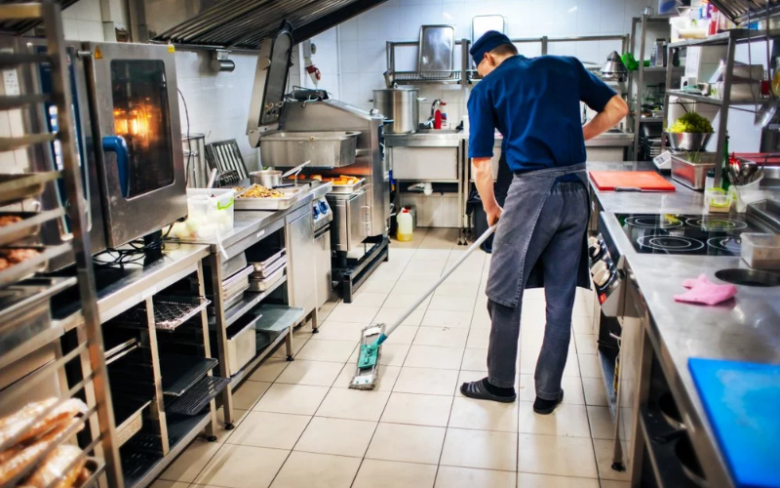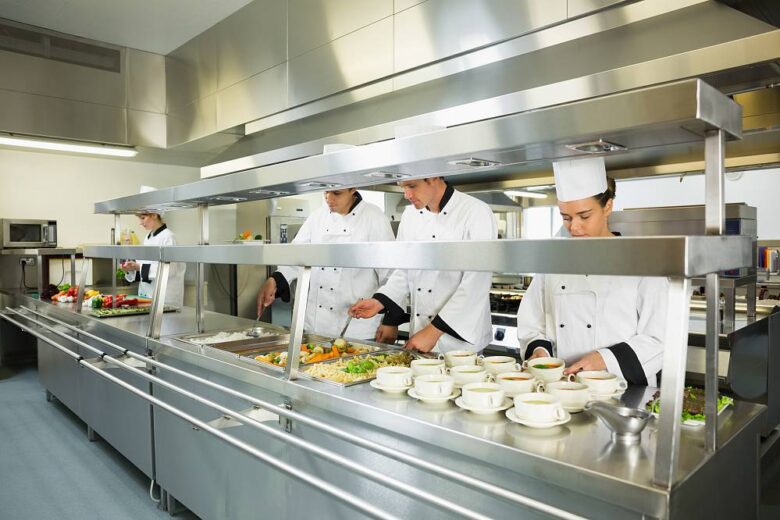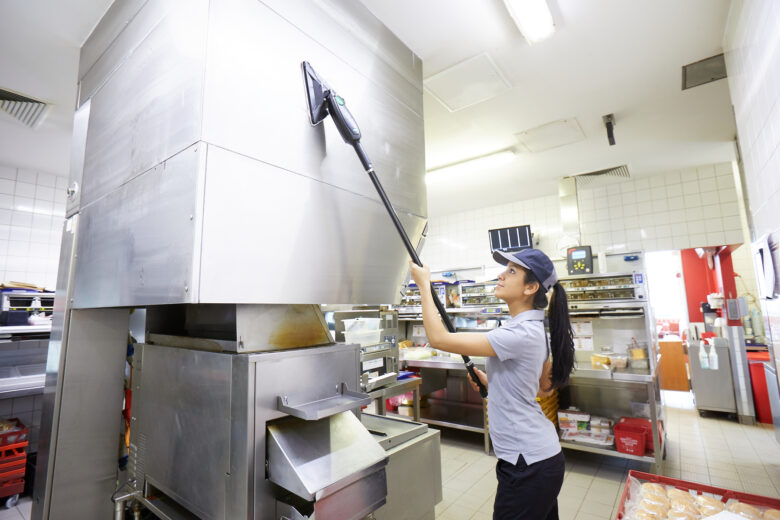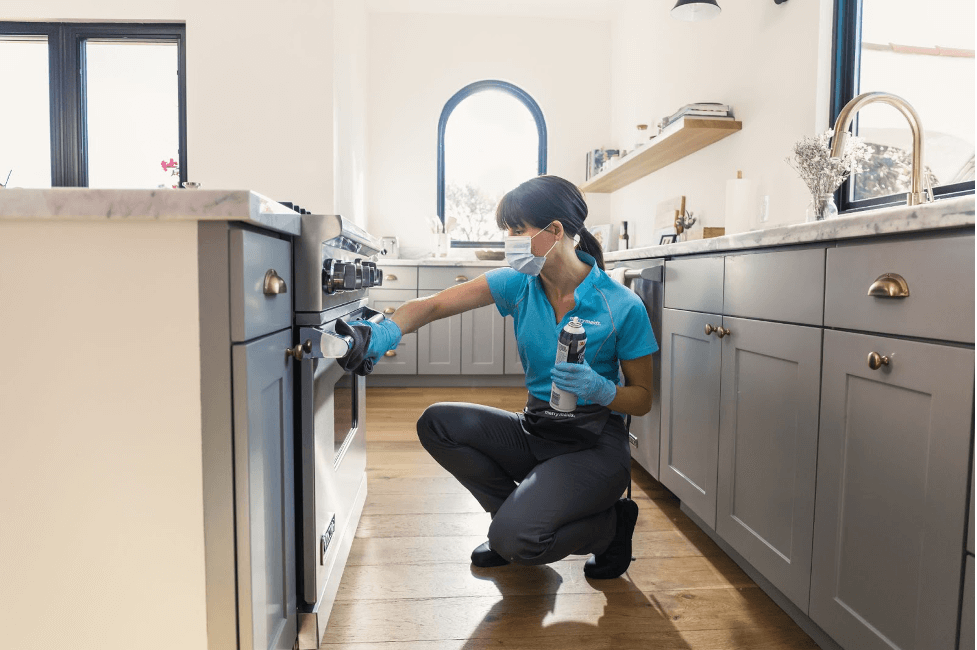In the bustling world of commercial restaurants, the heart of the operation lies in the kitchen. It’s a place where culinary magic happens, but it’s also where the importance of cleanliness can’t be overstated. Not only does a clean kitchen ensure the health and safety of both staff and patrons, but it also plays a pivotal role in the longevity of kitchen appliances. As someone who’s spent countless hours in commercial kitchens, I’ve seen firsthand how regular cleaning can significantly extend the life and efficiency of kitchen equipment.
The Impact of Kitchen Dirt and Grime on Appliances
Let’s talk about the unseen enemies of kitchen appliances: grease, food particles, and various forms of debris. These aren’t just unsightly; they’re also detrimental to the performance and lifespan of kitchen equipment. Grease and grime, for instance, can clog filters and vents, leading to overheating and reduced efficiency. In refrigeration units, dust and debris can cause coils to work harder than necessary, increasing energy consumption and causing premature wear. It’s a domino effect where a little neglect can lead to costly repairs or replacements.
Benefits of Regular Restaurant Kitchen Cleaning

Now, let’s shift gears to the brighter side. Regular restaurant kitchen cleaning offers a trifecta of benefits: improved appliance efficiency, extended lifespan, and significant cost savings. Clean appliances simply run better. For example, a regularly cleaned oven maintains consistent temperature control, ensuring perfect cooking results every time. Similarly, a clean dishwasher operates more efficiently, using less water and energy. Over time, these efficiencies add up, not just in terms of appliance performance but also in reduced maintenance costs and delays in the need for replacements.
Cleaning Techniques for Kitchen Appliances
Ovens and Ranges
The key to effectively cleaning ovens and ranges lies in regular maintenance. Use cleaning agents designed for tough grease and ensure that you’re not just cleaning the surfaces but also the interior components like racks and trays. Preventing carbon buildup is crucial; it not only affects the taste of food but also the appliance’s efficiency.
Refrigerators and Freezers
These are the workhorses of any commercial kitchen, and their upkeep is vital. Regular cleaning, defrosting, and temperature checks ensure they run efficiently. It’s also important to keep them free of food odors and potential cross-contamination, which can affect both food quality and safety.
The Role of Preventive Maintenance

Preventive maintenance goes hand-in-hand with cleaning. It’s not just about reacting to problems but proactively preventing them. This includes scheduling routine check-ups for appliances, identifying potential issues before they escalate, and ensuring professional servicing when needed. Regular maintenance can catch small issues like a worn seal or a loose hinge, which, if left unattended, could lead to bigger problems.
Employee Training and Compliance
Training kitchen staff in proper cleaning techniques is as crucial as the cleaning itself. It’s not just about handing them a mop and a bucket; it’s about instilling a culture of cleanliness and responsibility. Each member of the team should be well-versed in the cleaning schedule, understand the specifics of cleaning different appliances, and recognize the importance of their role in maintaining the kitchen’s overall hygiene. Compliance is key, and it’s achieved through regular monitoring and quality control checks. A well-trained staff is a restaurant’s first line of defense against premature appliance wear and tear.
Environmental Considerations
In today’s world, environmental responsibility is a badge of honor for any commercial kitchen. Choosing eco-friendly cleaning products is a step in the right direction. These products are not only effective but also reduce the ecological footprint of the cleaning process. Additionally, optimizing water and energy consumption during cleaning is vital. This includes using water-efficient methods and energy-saving appliances. Sustainable disposal practices for waste and used cleaning materials also play a significant role in minimizing environmental impact.
FAQ

Can the use of specific cleaning products extend the life of kitchen appliances?
Yes, using the right cleaning products is crucial. While the article discusses the importance of regular cleaning, it’s also vital to choose products specifically designed for commercial kitchen appliances. These specialized cleaners can effectively remove tough grease and grime without damaging the appliance surfaces or internal components.
How often should deep cleaning be scheduled for commercial kitchen appliances?
The frequency of deep cleaning depends on the appliance type and usage intensity. While the article outlines regular cleaning, deep cleaning schedules can vary. For instance, fryers might need a deep clean weekly, whereas ovens and refrigerators may require it monthly. It’s best to consult the appliance manufacturer’s guidelines and adjust based on your kitchen’s specific needs.
Are there any specific training programs for staff on appliance maintenance and cleaning?
Yes, there are specialized training programs available for commercial kitchen staff focusing on appliance maintenance and cleaning. These programs cover various aspects, from basic cleaning techniques to more advanced maintenance procedures. Investing in such training ensures that staff are well-equipped to handle the appliances correctly, thereby extending their lifespan.
What role does kitchen layout play in appliance maintenance and cleaning efficiency?
The layout of a commercial kitchen can significantly impact the ease and efficiency of appliance maintenance and cleaning. A well-designed kitchen layout allows for easy access to appliances for cleaning and maintenance. It also helps in preventing the buildup of dirt and grease in hard-to-reach areas, ensuring a more thorough and efficient cleaning process.
Conclusion
To wrap it up, the importance of kitchen cleaning in commercial restaurants cannot be overstated, especially regarding appliance longevity. It’s a critical component that goes beyond mere aesthetics. For restaurant owners and managers, prioritizing kitchen cleanliness is a smart business strategy that pays off in the long run. Not only does it ensure the smooth operation of the kitchen, but it also contributes to cost savings, employee well-being, customer satisfaction, and environmental stewardship. The message is clear: a clean kitchen is the cornerstone of a successful restaurant.

